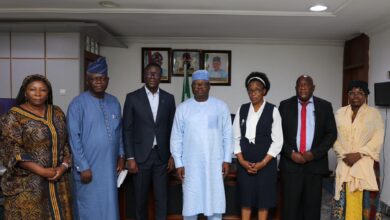2026 Budget Must Deliver Growth and Jobs

The 2026 Budget Statement and Economic Policy, presented by Finance Minister Dr. Cassiel Ato Forson to Parliament, marks a significant milestone in the government’s efforts to sustain economic stability and growth.
The presentation, in line with the Public Financial Management Act, fulfils the constitutional requirement mandating the Finance Minister to lay before Parliament the national budget and economic policy no later than November 15 each year.
The 2026 budget outlined the government’s fiscal strategy, revenue measures, spending priorities, and economic policy direction for the year ahead. Updates were provided on key sectors, ongoing reforms, and initiatives aimed at consolidating the gains achieved in recent years.
Notably, the Finance Minister did not introduce new taxes but instead announced the abolishment of some levies, including the COVID-19 levy, expected to return GH¢3.7 billion to individuals and businesses, while reducing the Value Added Tax (VAT) from 21.9% to 20%. The government also pledged to expand the tax net to lessen the burden on compliant taxpayers.
The budget arrives at a time when Ghana’s economy is showing strong signs of rebound and stability. Key macroeconomic indicators are trending positively:
- GDP growth has exceeded six percent by the second quarter of 2025, with further expansion projected.
- Inflation has declined from 23.8% at the end of 2024 to a single-digit figure of 8%.
- The Ghana cedi has appreciated by more than 35% year-to-date, recognized by the World Bank as one of Sub-Saharan Africa’s best-performing currencies.
- Gross international reserves have improved from $9.8 billion (4.5 months of import cover) to approximately $11 billion (5 months of import cover).
These indicators reflect the government’s commitment to fiscal discipline and prudent economic management.
While the 2026 budget signals macroeconomic improvement, policymakers must focus on linking these indicators to microeconomic realities. The Ministry of Finance must prioritise revenue mobilisation and rationalise expenditure to ensure sustained long-term growth, especially as Ghana exits the IMF programme next year and resumes full debt servicing.
Building strong financial buffers and adopting innovative measures will be crucial to meet obligations without derailing progress. Tax relief policies must be carefully calibrated to avoid destabilising the economy, and alternative revenue sources should be explored to offset potential shortfalls.
Equally important, the budget must address the high cost of living, which continues to burden households. Policies that lower production costs and ease supply constraints will be vital in curbing prices of food, goods, and services.
As the government consolidates its hard-won gains, strategic planning, fiscal prudence, and inclusive policies will be essential to steering Ghana’s economy toward sustained and equitable growth.
🔗 Follow Ghanaian Times WhatsApp Channel today. https://whatsapp.com/channel/0029VbAjG7g3gvWajUAEX12Q
🌍 Trusted News. Real Stories. Anytime, Anywhere.
✅ Join our WhatsApp Channel now! https://whatsapp.com/channel/0029VbAjG7g3gvWajUAEX12Q






